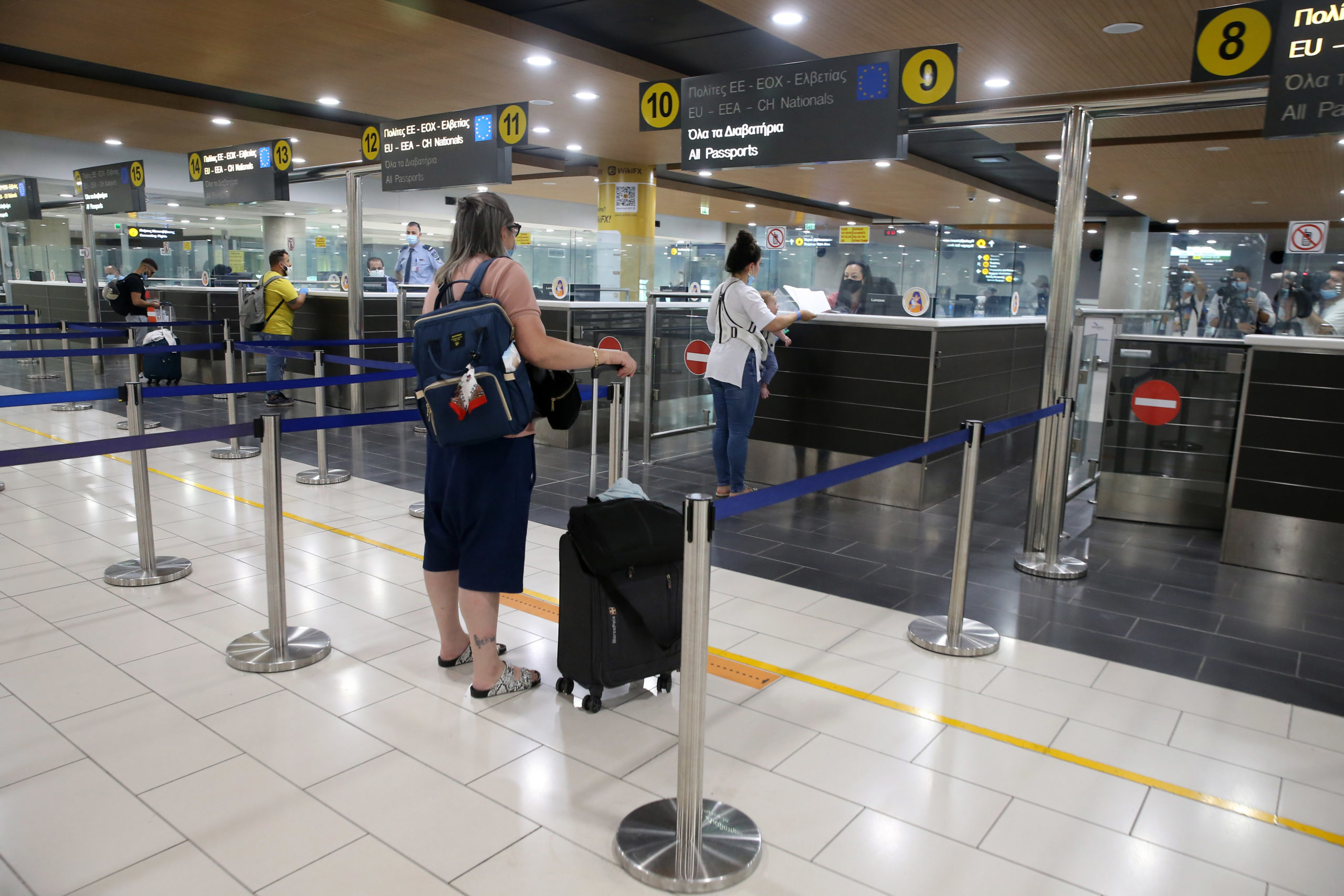Cyprus has reviewed its safe travel list, adding Iceland into the exclusive green category while downgrading Slovakia from orange to red.
There are now seven countries in the safer green zone, but no EU states represented in the category of countries from which tourists can enter without needing to self-isolate or get tested for COVID-19.
Meanwhile, the Health Ministry has warned that the situation with the pandemic is fluid and could bring about changes on the list.
Cyprus downgraded its EU Slovakia from orange to red in its newly revised COVID-19 safe travel list, just a week after being promoted from red to orange.
The new country risk assessment comes into effect on 20 May.
Cyprus has opened its doors to vaccinated tourists, regardless of their country of origin, to boost arrivals that plunged 86% last year.
The 65 countries Cyprus is opened up to on 10 May are EU member states, the European Economic Area such as Norway and Iceland, Switzerland, Armenia and other third countries Bahrain, Canada, Egypt, Israel, Kuwait, the UAE, the UK, Lebanon, the USA, and Canada.
Vaccinated tourists allowed unconditional entry must have taken a COVID-19 vaccine approved by the European Medicines Agency (EMA), Pfizer/BioNTech, AstraZeneca, Moderna and Janssen, or Russia’s SputnikV.
Tourists should be fully vaccinated at least 14 days before their flight.
The UK is the Mediterranean Island’s largest tourist source as a third of arrivals (pre-pandemic) are Britons, while Israel is the third-largest market.
Tourism stakeholders are pinning their hopes on vaccinated tourists from these countries after the government agreed that vaccinated Israelis and Britons could enter without restriction regardless of category.
Under the newly introduced colour-coded system, there is no mandatory quarantine for tourists entering Cyprus.
GREEN
Under the new COVID assessment scheme, low-risk countries currently classified in the Green category are Australia, New Zealand, Singapore, Saudi Arabia, South Korea, Israel, and Iceland.
Passengers arriving from these countries do not require to self-isolate or carry a negative coronavirus test.
ORANGE
Orange countries are those of higher risk than green.
Passengers must have undergone a PCR laboratory test within 72 hours before departure and have a certificate proving they tested negative for the virus.
EU member states 1) Portugal, 2) Finland, 3) Ireland 4) Malta
Schengen Area: 1) Norway
Third countries: 1) China (including Hong Kong and Macau), 2) UK 3) Thailand
Passengers from these countries can undergo the coronavirus test upon arrival at their own expense and remain in self-isolation pending the results if they are Cypriot citizens or residents.
RED
This category includes countries of higher risk than orange.
Passengers coming from red category countries are required: a) to prove a negative PCR test carried out under 72 hours before departure, and b) undergo another PCR test upon arrival in Cyprus. The cost of the test is charged to the individual.
European Union: 1) Austria, 2) Belgium, 3) Bulgaria, 4) France, 5) Croatia, 6) Luxembourg, 7) Romania, 8) Spain, 9) Italy, 10) Greece, 11) Netherlands, 12) Hungary, 13) Poland, 14) Denmark, 15) Slovenia, 16) Czech Republic, 17) Estonia, 18) Latvia, 19) Lithuania, 20) Sweden, 21) Germany, 22) Slovakia
Small states: 1) Andorra, 2) Monaco, 3) Vatican City, 4) San Marino
Schengen Area: 1) Switzerland, 2) Liechtenstein
Third Countries: 1) Rwanda, 2) Russia, 3) United Arab Emirates, 4) Ukraine, 5) Jordan, 6) Lebanon, 7) Egypt, 8) Belarus, 9) Qatar, 10) Serbia, 11) the United States of America, 12) Armenia, 13) Georgia, 14) Bahrain
GREY
Arrivals are allowed entry after acquiring special permission, and only if they are Cypriot citizens or entitled to enter.
Passengers must undergo a coronavirus test under 72 hours before their trip and have a certificate they tested negative for Covid-19.
Grey category passengers must remain in self-isolation for 14 days or 10 if they choose to carry out another coronavirus PCR test with a negative result.










